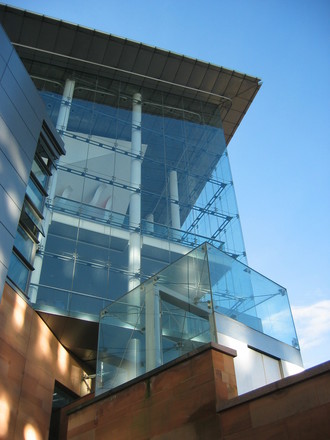
Summary: A roundup of news of interest regarding patents, especially software patents whose impact on Free/Open Source software is exceptionally profound
THE NEXT couple of weeks will be quiet for this site because we're taking a two-week break. Before we go, however, here are some important news from around the world.
Europe
There is an
EPO demonstration tomorrow. It tackles issues that relate to human rights, not to
software patents or the UPC, but nonetheless, those latter issues too are a growing threat to European interests. According to
a lawyers' site, UPC's "new regime will sit alongside rather than replace the existing patent system and will therefore require businesses to make careful choices about how they intend to protect their inventions and enforce their patent rights.
"The decisions they take could affect their patent litigation strategy and exposure to risk for years afterwards."
All one needs to know about it is that it is going to empower international/multinational companies and their patent lawyers. For everyone else it's a slap on the face.
India
We have been writing
a lot about India as of late, in relation to software patents. Dr. Glyn Moody
has a good article on this subject, comparing what India is doing right now to what Europe has been doing in recent years (since the Alison Brimelow days). To quote Moody: "These are very similar to the exclusions listed in Article 52 of the European Patent Convention (EPC), which governs patent law in Europe. And where the EPC uses the phrase "as such" when it comes to computer programs, the India exclusions contain the equivalent phrase "computer programme per se". As Techdirt readers know, the inclusion of "as such" as a qualifier to the exclusion of computer programs from patentability has opened up a huge loophole through which clever lawyers have driven many thousands of software patents. The fear -- quite justified -- is that exactly the same will happen in India because of the new guidelines' interpretation of what that "per se" phrase means..."
Indians will hopefully stand up and fight this injustice. It's a form of colonialism in the patents sense, akin to what large pharmaceutical companies are trying to do in this vast market (many potential 'customers').
United States
A few days ago we learned about yet another defeat for software patents in the United States."Five Blue Spike Patents Killed by Alice/101,"
Patent Buddy wrote the other day, linking to
this decision [PDF]. Notice the defendant; it's a common target of Microsoft.
The patent maximalists from
IAM are meanwhile reporting that ZTE, an Android player which we
mentioned here recently for patent assaults on it (from Microsoft and its trolls), wants to
"develop high-quality patent assets" (complete nonsense expressed using the language of patent propagandists). To quote the maximalists: "The average US consumer might not be familiar with the ZTE brand, but the latest figures from global intelligence firm IDC show that it has moved into fourth place in the American smartphone market, behind Apple, Samsung and LG. The Chinese company grabbed an 8% share of sales in the second quarter, up from just 4.4% at the start of 2014. ZTE has not exactly consolidated its gains yet, but its impressive growth offers a tentative success story for other would-be market entrants from China."
The last thing ZTE needs in the world, including the lucrative US market, is more patents. Let's hope that the US system will be healed over time, obviating the perceived need for such wasteful strategies that artificially elevate the price of products (lawyers' tax).
"Let’s hope that the US system will be healed over time, obviating the perceived need for such wasteful strategies that artificially elevate the price of products (lawyers’ tax)."Reporting from the AAMA webinar, AAMA Info wrote: "The patent troll itself admitted that less than 3 percent of such lawsuits ever make it to trial," adding that "97% settlement rate suggests a very good return on investment for the patent troll!"
Matt Levy wrote that he "was on a panel the other day discussing patent reform, and a funny thing happened. While we disagreed about a number of aspects of patent reform, basically everyone on the panel agreed that it’s ridiculous for one district (i.e., the Eastern District of Texas) to host so much patent litigation.
"Even those on the panel who didn’t like the current venue provision in the Innovation Act felt that it just needed some small tweaks in the language. They agreed with the basic approach of venue reform."
We are still hopeful and very much positive about the US patent system because it seems to be moving more in the direction of hostility towards software patents, whereas India and Europe go the other way. ⬆

